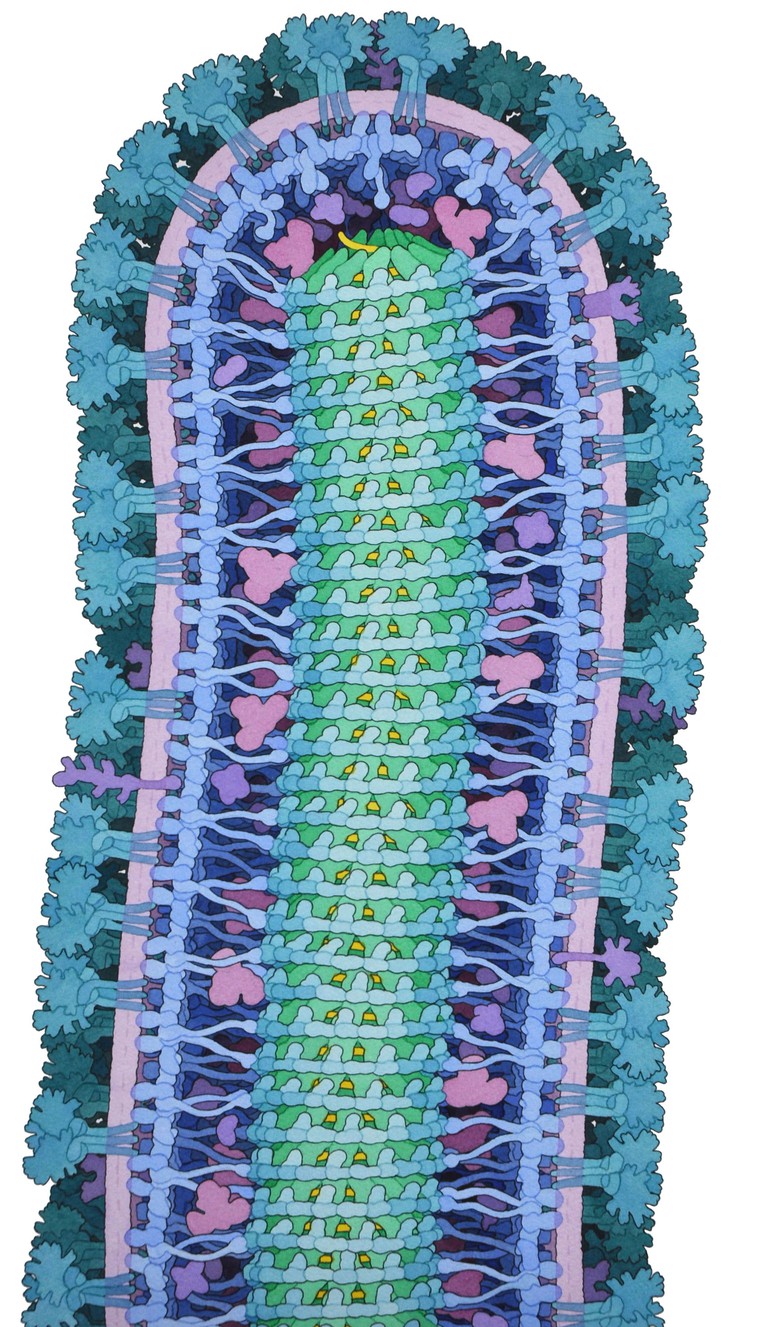This research report, from the World Federation of Science Journalists, explores the lived experience of African journalists during the 2014 Ebola crisis in West Africa, with the aim of highlighting key professional, technological and social aspects required for effective journalism during emergency and post-outbreak periods.

Ebola Illustration: David S Goodsell, RCSB Protein Data Bank
The research used qualitative surveys and interviews with over 200 journalists in countries affected by the Ebola outbreak. Participants were asked a series of questions around three key themes: professional, technological, and social elements as well as the use of sources.
For commentators, the epidemic highlighted a crisis not only in health but also in communications, highlighting the ineffectiveness of top down messaging to reach and inform communities as well as some of the other challenges journalists faced in bridging information gaps between scientists, NGOs, development and government agencies, and local communities.

This work, unless stated otherwise, is licensed under a Creative Commons Attribution 4.0 International License

Please Sign in (or Register) to view further.